32 start with G start with G

In the first decade of the twenty-first century, video games are an integral part of global media culture, rivaling Hollywood in revenue and influence. No longer confined to a subculture of adolescent males, video games today are played by adults around the world. At the same time, video games have become major sites of corporate exploitation and military recruitment.
In Games of Empire, Nick Dyer-Witheford and Greig de Peuter offer a radical political critique of such video games and virtual environments as Second Life, World of Warcraft, and Grand Theft Auto, analyzing them as the exemplary media of Empire, the twenty-first-century hypercapitalist complex theorized by Michael Hardt and Antonio Negri. The authors trace the ascent of virtual gaming, assess its impact on creators and players alike, and delineate the relationships between games and reality, body and avatar, screen and street.
Games of Empire forcefully connects video games to real-world concerns about globalization, militarism, and exploitation, from the horrors of African mines and Indian e-waste sites that underlie the entire industry, the role of labor in commercial game development, and the synergy between military simulation software and the battlefields of Iraq and Afghanistan exemplified by Full Spectrum Warrior to the substantial virtual economies surrounding World of Warcraft, the urban neoliberalism made playable in Grand Theft Auto, and the emergence of an alternative game culture through activist games and open-source game development.
Rejecting both moral panic and glib enthusiasm, Games of Empire demonstrates how virtual games crystallize the cultural, political, and economic forces of global capital, while also providing a means of resisting them.
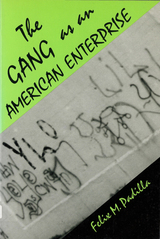
Padilla shows us his decision to join the Diamonds. From early childhood, boys develop positive images of the gang. They realize that the dominant culture promises mobility, but that their paths to that mobility are blocked. By joining a gang they can creatively oppose the dominant culture. Padilla does not paint a romanticized picture of the Diamonds. Some members come to understand that when they sell drugs, they benefit the gang's leaders and suppliers more than themselves. Further, they recognize that the gang is also subject to problems of domination and inequality. Padilla shows that though the Diamonds are sometimes violent, they are not psychopaths. While we need not approve of what they do, he urges us to understand it as a rational response to the doors these young men see closed around them.

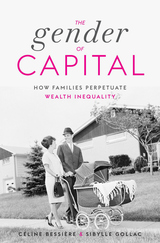
Two leading social scientists examine the gender wealth gap in countries with officially egalitarian property law, showing how legal professionals—wittingly and unwittingly—help rich families and men maintain their privilege.
In many countries, property law grants equal rights to men and women. Why, then, do women still accumulate less wealth than men? Combining quantitative, ethnographic, and archival research, The Gender of Capital explains how and why, in every class of society, women are economically disadvantaged with respect to their husbands, fathers, and brothers. The reasons lie with the unfair economic arrangements that play out in divorce proceedings, estate planning, and other crucial situations where law and family life intersect.
Céline Bessière and Sibylle Gollac argue that, whatever the law intends, too many outcomes are imprinted with unthought sexism. In private decisions, old habits die hard: families continue to allocate resources disproportionately to benefit boys and men. Meanwhile, the legal profession remains in thrall to assumptions that reinforce gender inequality. Bessière and Gollac marshal a range of economic data documenting these biases. They also examine scores of family histories and interview family members, lawyers, and notaries to identify the accounting tricks that tip the scales in favor of men.
Women across the class spectrum—from poor single mothers to MacKenzie Scott, ex-wife of Amazon billionaire Jeff Bezos—can face systematic economic disadvantages in divorce cases. The same is true in matters of inheritance and succession in family-owned businesses. Moreover, these disadvantages perpetuate broader social disparities beyond gender inequality. As Bessière and Gollac make clear, the appropriation of capital by men has helped to secure the rigid hierarchies of contemporary class society itself.
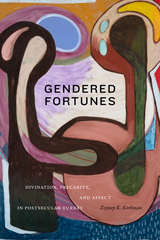
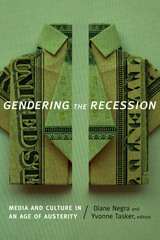
Contributors. Sarah Banet-Weiser, Hamilton Carroll, Hannah Hamad, Anikó Imre, Suzanne Leonard, Isabel Molina-Guzmán, Sinéad Molony, Elizabeth Nathanson, Diane Negra, Tim Snelson, Yvonne Tasker, Pamela Thoma

The unique model of apartheid, colonisation and military occupation that Israel imposes on the Palestinians, along with myriad violations of international law, have made Palestine the moral cause of a generation. Yet many people continue to ask, ‘what can we do?’
Generation Palestine helps to answer this question by bringing together Palestinian and international activists in the Boycott, Divestment and Sanctions (BDS) movement. The movement aims to pressure Israel until it complies with International Law, mirroring the model that was successfully utilised against South African apartheid.
With essays written by a wide selection of contributors, Generation Palestine follows the BDS movement’s model of inclusivity and collaboration. Contributors include Archbishop Desmond Tutu, Ken Loach, Iain Banks, Ronnie Kasrils, Professor Richard Falk, Ilan Pappe, Omar Barghouti, Ramzy Baroud and Archbishop Attallah Hannah, alongside other internationally acclaimed artists, writers, academics and grassroots activists.
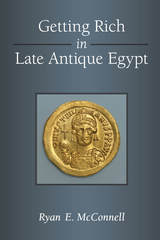
Ryan E. McConnell connects the family’s rise in wealth and status to its role in tax collection on behalf of the Byzantine state, rather than a reliance on productive surpluses. Close analysis of low- and high-level accounts from the Apion estate, as well as documentation from comparable Roman and Byzantine Egyptian estates, corroborate this conclusion. Additionally, McConnell offers a third way into the ongoing debate over whether the Apions’ relationship with the state was antagonistic or cooperative, concluding that the relationship was that of parties in a negotiation, with each side seeking to maximize its own benefit. The application of modern economic concepts—as well as comparisons to the economies of Athens, Rome, Ptolemaic Egypt, and Early Modern France—further illuminate the structure and function of the estate in Late Antique Egypt.
Getting Rich in Late Antique Egypt will be a valuable resource for philologists, archaeologists, papyrologists, and scholars of Late Antiquity. It will also interest scholars of agricultural, social, and economic history.
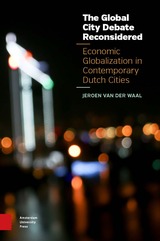
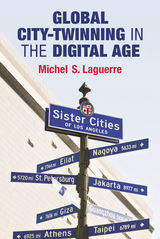
For many years, cities throughout the globe have developed ties with each other to process and nurture friendship, solidarity, and collaboration. These city relationships constitute a mode of governance distinct from those of cities that are not involved in such cross-border arrangements, with influence that expands far beyond region.
In this light, Global City-Twinning in the Digital Age unveils an analysis of intercity relationships both on a global scale and as a global phenomenon with digital communication technologies that play key roles in upgrading traditional practices, enhancing cross-border cooperation, and facilitating the production of digital sister cities. This book analyzes the deployment of sister-city formations and operations throughout the world with a focus on cities of North America, Latin America, North Africa, Europe, and the Mediterranean region. Using a global approach, it discusses friendship, entrepreneurship, urban development, cooperative management, municipal policy, and digital entanglements. It expands the scope of study of sister cities by unveiling the role of immigrants, diaspora, and post-diaspora in the making and functioning of the digital model of sister cities.
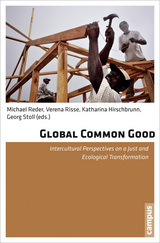

William I. Robinson, University of California-Santa Barbara
"[An] acute and revealing examination of the economic difficulties facing the American empire."
Ronnie D. Lipschutz, Professor of Politics, University of California, Santa Cruz
"Indispensable for students of international polical economy and a must for political activists." Professor Elmar Altvater, Department of Political Science, Free University, Berlin
Like many buzzwords, 'global governance' is as poorly understood as it is popular. In contrast to most mainstream accounts, this book examines global economic governance as an integral moment of contemporary capitalism -- presenting a critical insight into its real nature and the interests that it serves.
This book begins by asking what has not been discussed in the mainstream debates and why. Drawing on a Marxist perspective, Soederberg explores neglected issues including transnational debt and the increasingly coercive nature of US aid to so-called Œfailed states'. Soederberg argues that mainstream understandings fail to engage with the wider contradictions that characterise global capitalism. In consequence, there is no explanation of the changing nature of American empire and capitalist power in the world. Furthermore, Soederberg argues that global governance acts to normalise and legitimise increasingly austere forms of capitalist expansion, which may be regarded as a deepening and broadening of neoliberalism.
Susanne Soederberg is a Canada Research Chair in Global Political Economy and Associate Professor in International Development Studies at Queen's University, Kingston, Canada. She is author of The Politics of the New International Financial Architecture: Reimposing Neoliberal Domination in the Global South (Zed, 2005).
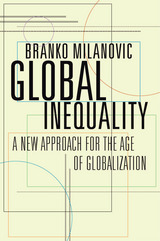
Winner of the Bruno Kreisky Prize, Karl Renner Institut
A Financial Times Best Economics Book of the Year
An Economist Best Book of the Year
A Livemint Best Book of the Year
One of the world’s leading economists of inequality, Branko Milanovic presents a bold new account of the dynamics that drive inequality on a global scale. Drawing on vast data sets and cutting-edge research, he explains the benign and malign forces that make inequality rise and fall within and among nations. He also reveals who has been helped the most by globalization, who has been held back, and what policies might tilt the balance toward economic justice.
“The data [Milanovic] provides offer a clearer picture of great economic puzzles, and his bold theorizing chips away at tired economic orthodoxies.”
—The Economist
“Milanovic has written an outstanding book…Informative, wide-ranging, scholarly, imaginative and commendably brief. As you would expect from one of the world’s leading experts on this topic, Milanovic has added significantly to important recent works by Thomas Piketty, Anthony Atkinson and François Bourguignon…Ever-rising inequality looks a highly unlikely combination with any genuine democracy. It is to the credit of Milanovic’s book that it brings out these dangers so clearly, along with the important global successes of the past few decades.
—Martin Wolf, Financial Times
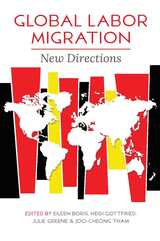
Global Labor Migration presents new multidisciplinary, transregional perspectives on issues surrounding global labor migration. The essays go beyond disciplinary boundaries, with sociologists, ethnographers, legal scholars, and historians contributing research that extends comparison among and within world regions. Looking at migrant workers from the late nineteenth century to the present day, the contributors illustrate the need for broader perspectives that study labor migration over longer timeframes and from wider geographic areas. The result is a unique, much-needed collection that delves into one of the world’s most pressing issues, generates scholarly dialogue, and proposes cutting-edge research agendas and methods.
Contributors: Bridget Anderson, Rutvica Andrijasevic, Katie Bales, Jenny Chan, Penelope Ciancanelli, Felipe Barradas Correia Castro Bastos, Eileen Boris, Charlie Fanning, Judy Fudge, Jorge L. Giovannetti-Torres, Heidi Gottfried, Julie Greene, Justin Jackson, Radhika Natarajan, Pun Ngai, Bastiaan Nugteren, Nicola Piper, Jessica R. Pliley, Devi Sacchetto, Helen Sampson, Yael Schacher, Joo-Cheong Tham, and Matt Withers
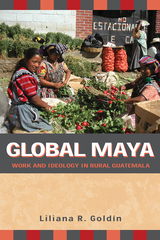
For more than a decade, Liliana Goldín observed in highland towns both the intensification of various forms of production and their growing links to wider markets. In this first book to compare economic ideology across a range of production systems, she examines how people make a living and how they think about their options, practices, and constraints. Drawing on interviews and surveys—even retellings of traditional narratives—she reveals how contemporary Maya respond to the increasingly globalized yet locally circumscribed conditions in which they work.
Goldín presents four case studies: cottage industries devoted to garment production, vegetable growing for internal and border markets reached through direct commerce, crops grown for export, and wage labor in garment assembly factories. By comparing generational and gendered differences among workers, she reveals not only complexities of change but also how these complexities arereflected in changing attitudes, understandings, and aspirations that characterize people’s economic ideology. Further, she shows that as rural people take on diverse economic activities, they also reinterpret their views on such matters as accumulation, cooperation, competition, division of labor, and community solidarity.
Global Maya explores global processes in local terms, revealing the interplay of traditional values, household economics, and the inescapable conditions of demographic growth, a shrinking land base, and a global economy always looking for cheap labor. It offers a wealth of new insights not only for Maya scholars but also for anyone concerned with the effects of globalization on the Third World.

This updated second edition of Global Technological Change reconsiders how we make and use technology in the twenty-first century. With human-centered "soft technology" driving machine-based "hard technology" in ever more complex ways, Zhouying Jin provides an understanding of the human dimension of technological advancement. Through a theoretical framework that incorporates elements of both Eastern and Western philosophy, she offers insight into the dynamic between the two as it relates to a variety of technological innovation. More relevant than ever, Global Technological Change continues to challenge assumptions about technology and the gap between the developed and developing countries in the twenty-first century.
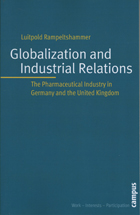
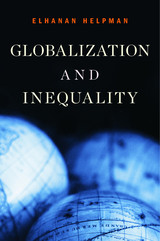
One of the world’s leading experts on international trade explains that we must look beyond globalization to explain rising inequality.
Globalization is not the primary cause of rising inequality. This may come as a surprise. Inequality within nations has risen steadily in recent decades, at a time when countries around the world have eased restrictions on the movement of goods, capital, and labor. Many assume a causal relationship, which has motivated opposition to policies that promote freer trade. Elhanan Helpman shows, however, in this timely study that this assumption about the effects of globalization is more myth than fact.
Globalization and Inequality guides us through two decades of research about the connections among international trade, offshoring, and changes in income, and shows that the overwhelming conclusion of contemporary research is that globalization is responsible for only a small rise in inequality. The chief causes remain difficult to pin down, though technological developments favoring highly skilled workers and changes in corporate and public policies are leading suspects. As Helpman makes clear, this does not mean that globalization creates no problems. Critics may be right to raise concerns about such matters as cultural autonomy, child labor, and domestic sovereignty. But if we wish to curb inequality while protecting what is best about an interconnected world, we must start with a clear view of what globalization does and does not do and look elsewhere to understand our troubling and growing divide.
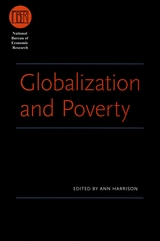
Over the past two decades, the percentage of the world’s population living on less than a dollar a day has been cut in half. How much of that improvement is because of—or in spite of—globalization? While anti-globalization activists mount loud critiques and the media report breathlessly on globalization’s perils and promises, economists have largely remained silent, in part because of an entrenched institutional divide between those who study poverty and those who study trade and finance.
Globalization and Poverty bridges that gap, bringing together experts on both international trade and poverty to provide a detailed view of the effects of globalization on the poor in developing nations, answering such questions as: Do lower import tariffs improve the lives of the poor? Has increased financial integration led to more or less poverty? How have the poor fared during various currency crises? Does food aid hurt or help the poor?
Poverty, the contributors show here, has been used as a popular and convenient catchphrase by parties on both sides of the globalization debate to further their respective arguments. Globalization and Poverty provides the more nuanced understanding necessary to move that debate beyond the slogans.

In the American federal system, states actively compete for jobs, business investment, and factory locations. Labor costs have played an important role in such interstate competition since the days of the pre-Civil War plantation economy. In recent years, however, global economic trends have put added pressures on businesses and government to reduce labor costs. At least, that is what most politicians, the media, and the business community believe.
Globalization and the Politics of Pay examines the economic, political, and social causes and consequences of declining wages in the United States. It challenges the conventional wisdom that globalization is to blame for the decline in workers' earnings. Susan B. Hansen presents a comprehensive analysis of the many factors affecting labor costs and concludes that many of them result from choices made by the states themselves through the laws and policies they enact. In addition, free-market ideologies and low voter turnout have had greater effects in keeping wages down than globalization. In fact, foreign trade and investment can actually result in higher pay in the state labor market.
In this rigorous yet surprising study, Hansen develops new measures of state and federal labor costs to test competing theories of the consequences of reducing wages and benefits. Most economists would argue that higher labor costs cause higher unemployment, and that reducing labor costs will lead to higher levels of job creation. But citizens and elected officials must weigh any employment gains in lower-wage jobs against slower state economic growth, declining personal income, and a less-competitive position in international trade. Cutting state labor costs is shown to have adverse social consequences, including family instability, high crime rates, poverty, and low voter turnouts. The book concludes with policy recommendations for state governments trying to balance their need for more jobs with policies to enhance productivity, living standards, social stability, and international competitiveness.
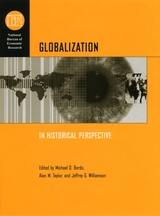
This volume collects eleven papers doing exactly that and more. The first group of essays explores how the process of globalization can be measured in terms of the long-term integration of different markets-from the markets for goods and commodities to those for labor and capital, and from the sixteenth century to the present. The second set of contributions places this knowledge in a wider context, examining some of the trends and questions that have emerged as markets converge and diverge: the roles of technology and geography are both considered, along with the controversial issues of globalization's effects on inequality and social justice and the roles of political institutions in responding to them. The final group of essays addresses the international financial systems that play such a large part in guiding the process of globalization, considering the influence of exchange rate regimes, financial development, financial crises, and the architecture of the international financial system itself.
This volume reveals a much larger picture of the process of globalization, one that stretches from the establishment of a global economic system during the nineteenth century through the disruptions of two world wars and the Great Depression into the present day. The keen analysis, insight, and wisdom in this volume will have something to offer a wide range of readers interested in this important issue.

In God’s Businessmen, Sarah Ruth Hammond explores not only these men’s personal trajectories but also those of the service clubs and other institutions that, like them, believed that businessmen were God’s instrument for the Christianization of the world. Hammond presents a capacious portrait of the relationship between the evangelical business community and the New Deal—and in doing so makes important contributions to American religious history, business history, and the history of the American state.

Entertaining and expert, The Gold in the Rings maps the Olympics' course from paragon of purity to billion-dollar profits.
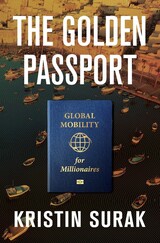
"[A] fascinating study of how people―and their capital―seek to move around a world that is at once hugely interconnected and driven by inequities…definitive, detailed, and unusually nuanced.”
―Atossa Araxia Abrahamian, Foreign Affairs
The first comprehensive on-the-ground investigation of the global market for citizenship, examining the wealthy elites who buy passports, the states and brokers who sell them, and the normalization of a once shadowy practice.
Our lives are in countless ways defined by our citizenship. The country we belong to affects our rights, our travel possibilities, and ultimately our chances in life. Obtaining a new citizenship is rarely easy. But for those with the means—billionaires like Peter Thiel and Jho Low, but also countless unknown multimillionaires—it’s just a question of price.
More than a dozen countries, many of them small islands in the Mediterranean, Caribbean, and South Pacific, sell citizenship to 50,000 people annually. Through six years of fieldwork on four continents, Kristin Surak discovered how the initially dubious sale of passports has transformed into a full-blown citizenship industry that thrives on global inequalities. Some “investor citizens” hope to parlay their new passport into visa-free travel—or use it as a stepping stone to residence in countries like the United States. Other buyers take out a new citizenship as an insurance policy or to escape state control at home. Almost none, though, intend to move to their selected country and live among their new compatriots, whose relationship with these global elites is complex.
A groundbreaking study of a contentious practice that has become popular among the nouveaux riches, The Golden Passport takes readers from the details of the application process to the geopolitical hydraulics of the citizenship industry. It’s a business that thrives on uncertainty and imbalances of power between big, globalized economies and tiny states desperate for investment. In between are the fascinating stories of buyers, brokers, and sellers, all ready to profit from the citizenship trade.

"Goss and Morse provide an outstandingly sound economic understanding of the function and place of casinos in American society, including essential heretofore unavailable grounding in the legal issues that the book accomplishes remarkably effectively. Moreover, this wealth of economic and legal information is transmitted in an engaging and readable manner. Scholarly, thoughtfully collected and authoritative, the book is of interest to any learner of the gambling industry, including students, civic activists, legislators, and scholars."
— Earl Grinols, Baylor University
"In this book, Morse and Goss make important contributions to our understanding of the negative outcomes of the expansion of gambling in America."
— Jon Bruning, Nebraska Attorney General
Edward A. Morse is Professor of Law and holder of the McGrath North Mullin & Kratz Endowed Chair in Business Law at Creighton University School of Law. Ernest P. Goss is Professor of Economics and MacAllister Chair at Creighton University and was a 2004 scholar-in-residence with the Congressional Budget Office.
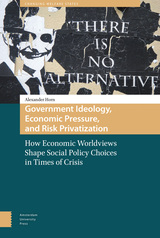
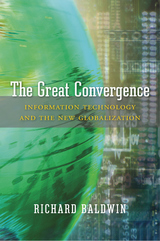
An Economist Best Book of the Year
A Financial Times Best Economics Book of the Year
A Fast Company “7 Books Microsoft CEO Satya Nadella Says You Need to Lead Smarter”
Between 1820 and 1990, the share of world income going to today’s wealthy nations soared from twenty percent to almost seventy. Since then, that share has plummeted to where it was in 1900. As the renowned economist Richard Baldwin reveals, this reversal of fortune reflects a new age of globalization that is drastically different from the old. The nature of globalization has changed, but our thinking about it has not.
Baldwin argues that the New Globalization is driven by knowledge crossing borders, not just goods. That is why its impact is more sudden, more individual, more unpredictable, and more uncontrollable than before—which presents developed nations with unprecedented challenges as they struggle to maintain reliable growth and social cohesion. It is the driving force behind what Baldwin calls “The Great Convergence,” as Asian economies catch up with the West.
“In this brilliant book, Baldwin has succeeded in saying something both new and true about globalization.”
—Martin Wolf, Financial Times
“A very powerful description of the newest phase of globalization.”
—Larry Summers, former U.S. Secretary of the Treasury
“An essential book for understanding how modern trade works via global supply chains. An antidote to the protectionist nonsense being peddled by some politicians today.”
—The Economist
“[An] indispensable guide to understanding how globalization has got us here and where it is likely to take us next.”
—Alan Beattie, Financial Times

Environmental groups for the first time formalized their role in shaping U.S. and international trade policy during their involvement in NAFTA negotiations. John J. Audley identifies the political forces responsible for forging this new intersection of trade and environment policy during NAFTA negotiations, analyzes the achievements of the environmentalists, and explores their prospects for influencing future trade policy.
The need to reconcile the conflicting paradigms of economic expansion through free trade and that of limited sustainable development played a significant part in the political debate. Reluctant to acknowledge any relationship between these two principles, traditional trade policy actors were forced to include environmental interest groups in negotiations when the latter seriously threatened the treaty by aligning themselves with other anti-NAFTA interest groups, particularly labor. Other environmental groups worked with trade advocates to secure compromises in the agreement. The final bill included unprecedented environmental provisions, but not without serious infighting within the environmentalist community.
Drawing on his access to private as well as public documents exchanged among participants, Audley explores the interactions among the political actors. He explains how political compromises between environmental groups and trade policy elites came about, focusing in particular on the roles played by eleven national environmental organizations. In identifying their accomplishments, he concludes that although the environmentalists won some procedural changes, they failed to modify the norm of unfettered growth as the guiding principle of U.S. trade policy.
The first book to probe the role that environmental politics play in trade policy, this volume offers new insights into the political effectiveness of environmental organizations.

This eye-opening book reports the results of a large-scale study based on extensive financial and technical analyses of more than 150 green buildings in the U.S. and ten other countries. It provides detailed findings on the costs and financial benefits of building green. According to the study, green buildings cost roughly 2% more to build than conventional buildings—far less than previously assumed—and provide a wide range of financial, health and social benefits. In addition, green buildings reduce energy use by an average of 33%, resulting in significant cost savings.
Greening Our Built World also evaluates the cost effectiveness of “green community development” and presents the results of the first-ever survey of green buildings constructed by faith-based organizations. Throughout the book, leading practitioners in green design—including architects, developers, and property owners—share their own experiences in building green. A compelling combination of rock-solid facts and specific examples, this book proves that green design is both cost-effective and earth-friendly.

Duke University Press Scholars of Color First Book Award recipient

A telling look at today’s “reverse” migration of white, middle-class expats from north to south, through the lens of one South American city
Even as the “migration crisis” from the Global South to the Global North rages on, another, lower-key and yet important migration has been gathering pace in recent years—that of mostly white, middle-class people moving in the opposite direction. Gringolandia is that rare book to consider this phenomenon in all its complexity.
Matthew Hayes focuses on North Americans relocating to Cuenca, Ecuador, the country’s third-largest city and a UNESCO World Heritage Site. Many began relocating there after the 2008 economic crisis. Most are self-professed “economic refugees” who sought offshore retirement, affordable medical care, and/or a lower–cost location. Others, however, sought adventure marked by relocation to an unfamiliar cultural environment and to experience personal growth through travel, illustrative of contemporary cultures of aging. These life projects are often motivated by a desire to escape economic and political conditions in North America.
Regardless of their individual motivations, Hayes argues, such North–South migrants remain embedded in unequal and unfair global social relations. He explores the repercussions on the host country—from rising prices for land and rent to the reproduction of colonial patterns of domination and subordination. In Ecuador, heritage preservation and tourism development reflect the interests and culture of European-descendent landowning elites, who have most to benefit from the new North–South migration. In the process, they participate in transnational gentrification that marginalizes popular traditions and nonwhite mestizo and indigenous informal workers. The contrast between the migration experiences of North Americans in Ecuador and those of Ecuadorians or others from such regions of the Global South in North America and Europe demonstrates that, in fact, what we face is not so much a global “migration crisis” but a crisis of global social justice.

Political scientist Immanuel Ness thoroughly investigates the use of guest workers in the United States, the largest recipient of migrant labor in the world. Ness argues that the use of migrant labor is increasing in importance and represents despotic practices calculated by key U.S. business leaders in the global economy to lower labor costs and expand profits under the guise of filling a shortage of labor for substandard or scarce skilled jobs.
Drawing on ethnographic field research, government data, and other sources, Ness shows how worker migration and guest worker programs weaken the power of labor in both sending and receiving countries. His in-depth case studies of the rapid expansion of technology and industrial workers from India and hospitality workers from Jamaica reveal how these programs expose guest workers to employers' abuses and class tensions in their home countries while decreasing jobs for American workers and undermining U.S. organized labor.
Where other studies of labor migration focus on undocumented immigrant labor and contend immigrants fill jobs that others do not want, this is the first to truly advance understanding of the role of migrant labor in the transformation of the working class in the early twenty-first century. Questioning why global capitalists must rely on migrant workers for economic sustenance, Ness rejects the notion that temporary workers enthusiastically go to the United States for low-paying jobs. Instead, he asserts the motivations for improving living standards in the United States are greatly exaggerated by the media and details the ways organized labor ought to be protecting the interests of American and guest workers in the United States.
READERS
Browse our collection.
PUBLISHERS
See BiblioVault's publisher services.
STUDENT SERVICES
Files for college accessibility offices.
UChicago Accessibility Resources
home | accessibility | search | about | contact us
BiblioVault ® 2001 - 2024
The University of Chicago Press









